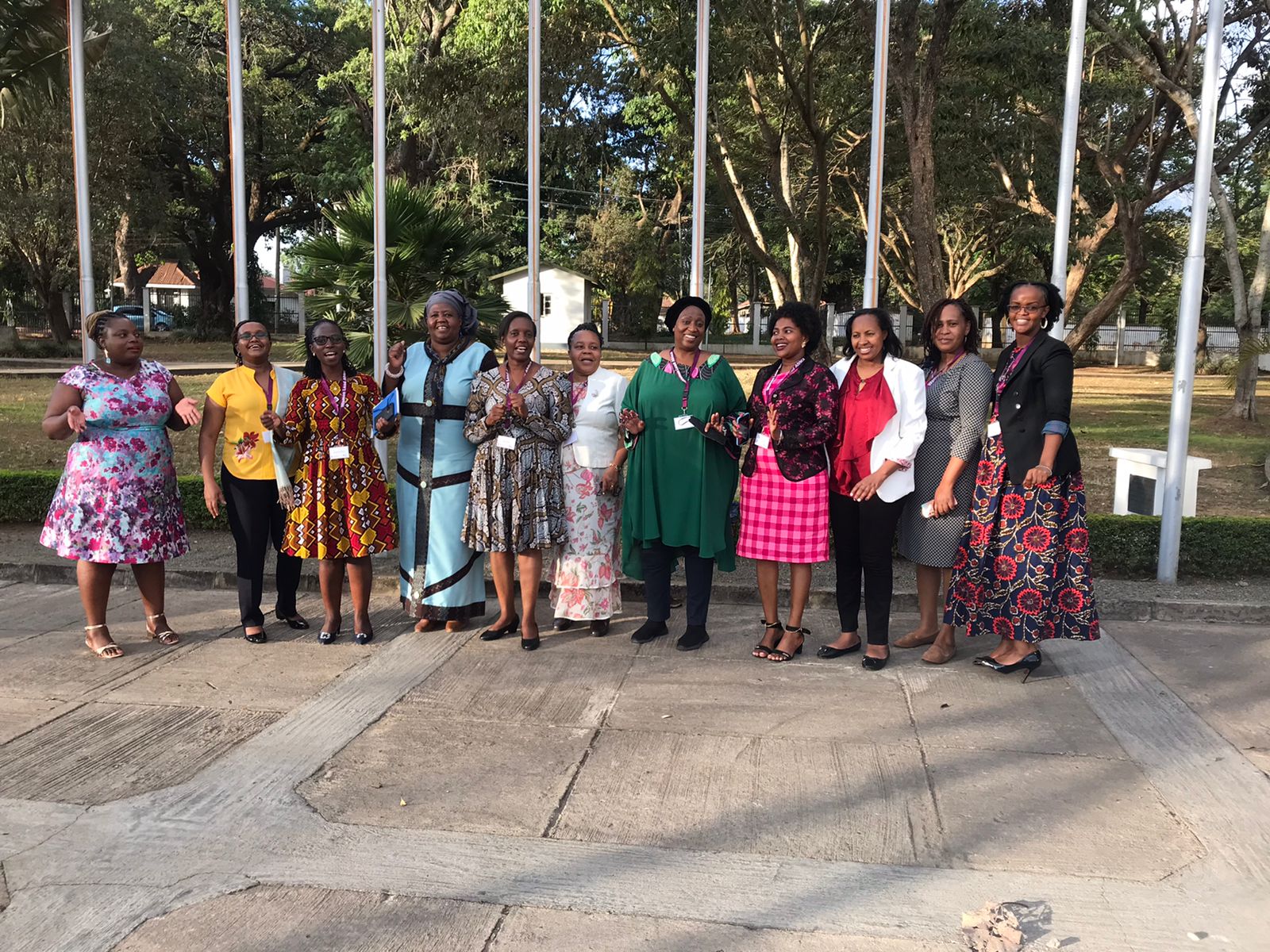
| |
KENYAN WOMENS' RIGHTS ORGANISATIONS SUBMIT A PETITION FOR CONSIDERATION TO EAST AFRICAN LEGISLATIVE ASSEMBLY ON THE TWO THIRDS GENDER PRINCIPLE
Date: 25-11-2021
By Liberty Kituu
As the clock counts down to the August 2022 general elections in Kenya, the two thirds gender principle remains in abeyance. In a bid to secure the political rights of women and having faced frustration from the leadership here at home, Kenyan women rights organisations led by Community Advocacy and Awareness (CRAWN) Trust and The African Women's' Development and Communication Network-FEMNET have turned to the region seeking their intervention. Last week on 19th November 2021, the organisations submitted a petition to the Rt. Hon. Martin Ngonga, the speaker of the East Africa Legislative Assembly (EALA) on the state of the two thirds gender principle in Kenya.
Speaking during the handing over of the petition at an event held in Arusha Tanzania, coordinated by FEMNET on enhancing the inclusion of women in political participation, CRAWN Trust's executive director Daisy Amdany noted that despite Kenya being a trend setter in the region and an EAC partner state whose president is the Chairperson of the EAC Heads of State Summit, Kenya remains the shame of the region being the only country that has not implemented the constitutional imperatives regarding gender and women's' inclusion.
"Rwanda is leading the region and the world in ensuring that women are included in all levels of leadership, yet Kenya with the most progressive constitution that provides for women's' participation in social, economic and political spheres, has failed to demonstrate the requisite political goodwill from the legislature and the executive to spearhead the full implementation of gender and women's inclusion" she noted
A significant provision of the Constitution of Kenya 2010 within the Bill of Rights is the principle that not more than two thirds of the same gender shall be in any elective and appointive offices (Article 27 (8). This is reinforced by efforts to reduce gender imbalances in government through legislation, policies and programmes including affirmative action in article 26 (6), with article 81 (b) providing that no more than two-thirds of the members of elective public bodies are of the same gender meaning that political parties must have mechanisms to ensure that at least a third of the opposite gender are elected to public office. A lack of political goodwill has seen the legislature and executive fail to implement an operationalization mechanism. There has been consistent pressure from the non-state actors and specifically the women's' rights organisations to have a mechanism put in place and this has been the subject of successful judicial rulings on the matter.
The gender equality clauses in the 2010 constitution require a minimum one third (33.33%) opposite gender balance for both elective and appointive positions. Kenya's 12th parliament, elected in 2017, has 22% and 31% female representation in the parliament and senate respectively. On 21 September 2020, Chief Justice emeritus David Maraga wrote to president Uhuru Kenyatta advising him to dissolve parliament for their refusal, failure or neglect in enacting the necessary legislation to implement the not more than two thirds gender principle.
"That the advisory on the dissolution of parliament due to its failure to enact a legislation to provide for the two thirds gender principle has not been implemented and we are now on our way to the third general election under the new constitution in August 2022 and no one is dealing with the issue is a clear sign that Kenya's' leadership is not bothered by the implications of ignoring court orders and the trouble which will ensue which is why we are asking the East African Legislative Assembly to help us find a solution" said Daisy Amdany.
As he received the petition, the Rt. Hon. Martin Ngonga noted that "political will at all levels and requisite gender mainstreaming capacities is critical to unlocking the barriers hindering women's access to political participation" The EALA speaker further called upon CRAWN Trust, FEMNET and IDEA to collaborate with the regional assembly and the EALA women's caucus in strengthening the capacity for gender mainstreaming in EAC legislation processes, policy, and programme formulation.
The Independ Electoral and Boundaries Commission-IEBC has also stood its ground and pronounced itself clearly that they will reject any party lists for election that will not meet the gender principle.
The constitution of Kenya 2010 sets the two thirds principle as among the principles of the electoral process meaning that the lack of an operationalization mechanism within the electoral process robs the elections of their credibility and anyone can use this as grounds to invalidate the entire electoral process because the constitution in Article 81 (b) gives as much weight to the requirement of adherence to the two thirds gender principle in elective offices as it does to free, fair and credible elections.
Therefore, the lack of a mechanism to implement the not more than two thirds gender principle, over ten years since the promulgation of the Constitution of Kenya, is an affront to the constitution and is sure to precipitate a constitutional crisis which will affect the next parliament and by extent the whole country.